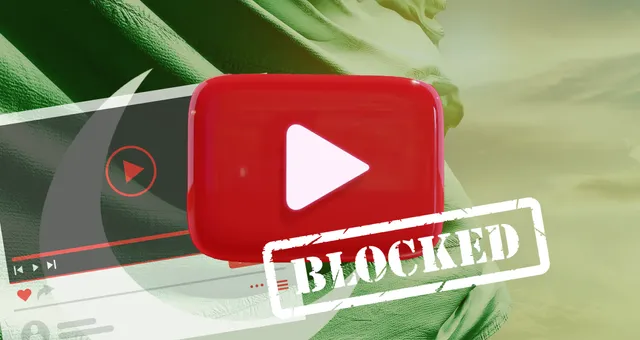Islamabad, 28 Apr, 2025: YouTube Channels Get Blocks has become a headline across South Asia after India moved to ban more than 16 major Pakistani YouTube outlets others, which together had amassed over 63 million subscribers.
Authorities accused the channels of distributing “false narratives” against the Indian military and promoting “provocative, communal content” in the aftermath of the recent terror attack in Pahalgam, Kashmir.
The restrictions, enforced on April 27, 2025, affect a range of Pakistani news networks and individual journalists.
According to Indian government officials, the decision followed allegations that these digital platforms were involved in sharing misleading information targeting India’s armed forces and security institutions.
READ MORE: Ranveer Allahbadia YouTube Channels Hacked: A Shocking Cyber Attack and His Response
List of Banned Platforms
The ban encompasses several leading news organizations such as Dawn News (1.96 million subscribers), Geo News (18.1 million), ARY News (14.6 million), SAMAA TV (12.7 million), and BOL News (7.85 million).
Prominent journalists, including Irshad Bhatti, Asma Shirazi, Umar Cheema, and Muneeb Farooq, were also impacted.
Additionally, channels focusing on sports, like Samaa Sports and Uzair Cricket, alongside various smaller media groups such as Raftar, The Pakistan Reference, GNN, SUNO News HD, and Razi Naama, were targeted under the directive.
Government insiders indicated that the decision was prompted by the deadly Pahalgam attack on April 22, which claimed the lives of 26 people, primarily tourists.
Rising tensions between India and Pakistan following the incident have led to stricter media regulations and digital monitoring.
In parallel developments, New Delhi also issued a formal caution to the BBC, expressing dissatisfaction with its coverage of the Kashmir incident, particularly criticizing the broadcaster’s use of the word “militants” instead of “terrorists” when describing the perpetrators.
Prime Minister Narendra Modi reaffirmed India’s commitment to a decisive counter-terror strategy, remarking that the nation’s collective resolve would dismantle the networks fostering extremism.
READ MORE: How to Monetize Your YouTube Channel
His statements, delivered at a public event, underlined a firm approach towards groups perceived to threaten national security.
Meanwhile, the National Investigation Agency (NIA) has formally assumed responsibility for probing the Pahalgam attack, with officials pledging a thorough and swift inquiry.
The phrase YouTube Channels Get Blocks encapsulates a wider shift in how nations are responding to perceived misinformation in the digital era.
As cross-border media influence grows, governments appear increasingly willing to take robust actions to manage narratives they view as harmful to public order and national stability.
